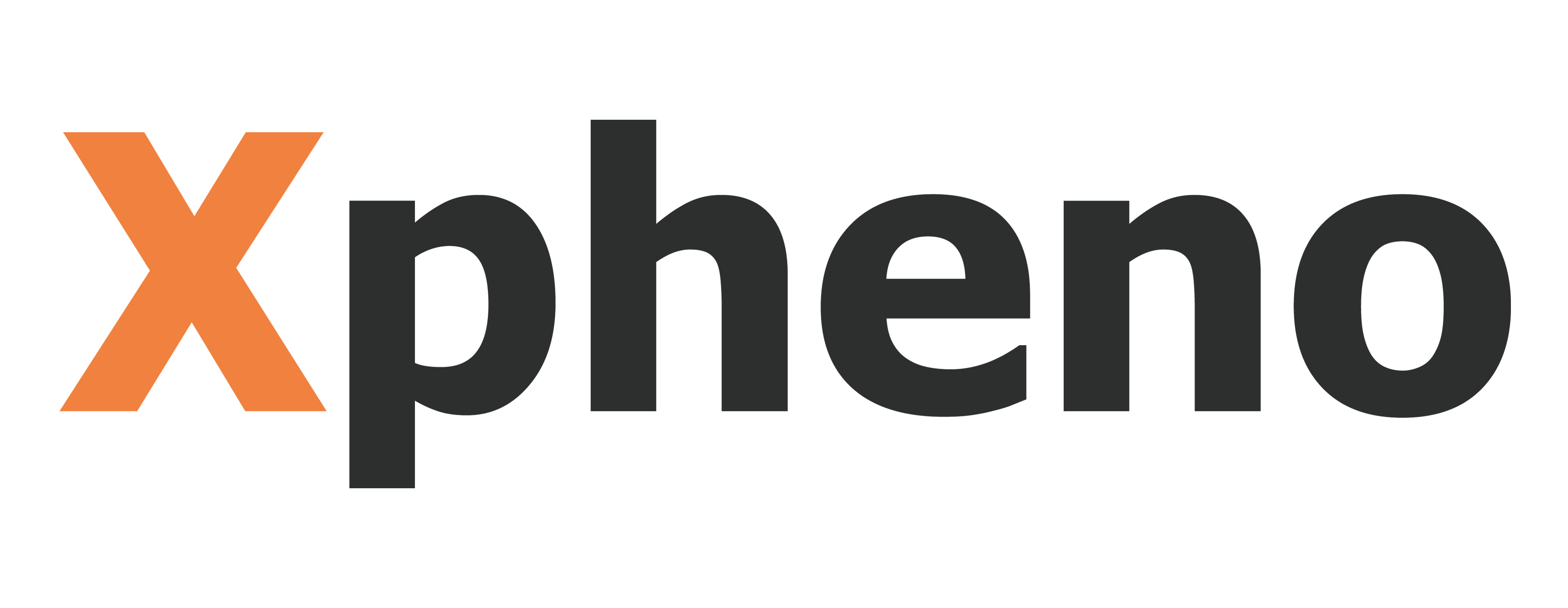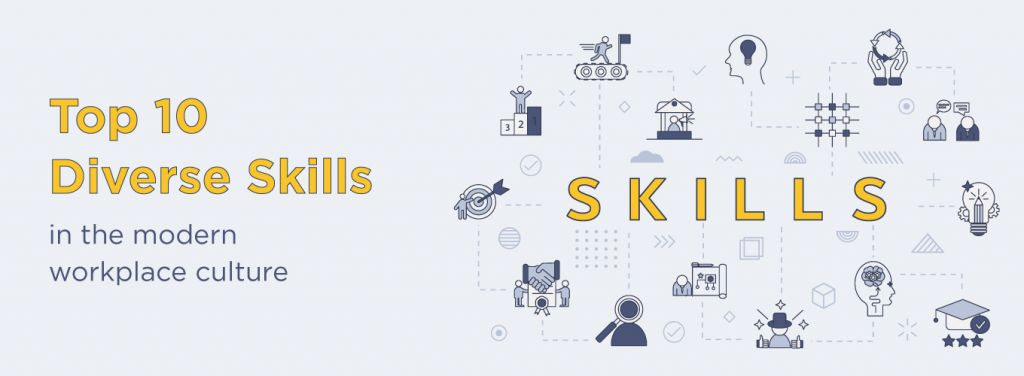Contemporary labor market is a multi-faceted environment where a wide array of competencies work harmoniously. While companies move forward and embrace diversity, employees will require more than technical skills within the fields to deal with various issues.
Table of Contents
Why is diversity in skills needed
One of the reasons why a workplace benefits from a diverse skill set is that a variety of skills make the workplace more productive and efficient. Connections between different skills of the staff enables the company to deal with multiple problems and tasks well. Regular input of different skill sets provide new outlooks and approaches to solving problems in the organization and thus it becomes innovative and creative.
In addition to this, a disparate set of skills instigates passion and versatility in the workforce. Today’s pivoting world of trade and commerce attributes great importance to fast-changing attitudes and practical approaches. The employees of diverse expertise are able to cope, adjust the strategy and grasp emerging chances by going an extra mile. Besides that, a host of varying skill sets helps build learning and development culture as the staff is encouraged to share information and knowledge across interdisciplinary teams, thus making the talents of the entire organization to grow. Through this, different skills can create an environment for sustainable evolution, innovation, and productivity of workplaces in the changing world.
Top 10 skill diversity in modern workplace
Adaptability and Flexibility
The competence of managing transformation and mastering unpredictability is mostly important now where a lot of businesses that change rapidly. Employees who are versatile enough to quickly switch between different tasks, projects, and learning ways help the organization overcome the changes and stay flexible.
Critical Thinking and Problem-Solving
Critical thinking skills have the ability of employees to review data, think through situations and develop positive thinking, which lets them make solid decisions. A workplace of diverse nexus brings forth individuals with competencies in problem-solving which are able to take varied approaches that promote novelty and innovation as well.
Effective Communication
The essence of productive participation is a good and effective communication message. In a versatile workplace, that includes the staff members with different backgrounds and experiences, the ability of a staff to communicate, listen and attach what the person says becomes essential for the creation of strong teams and relationships.
Cultural Competence
One important aspect is that cultural competence will be a part of the process and it will include the understanding and appreciation of various cultures, backgrounds, or perspectives. Staff with cultural sensitivity make a productive atmosphere that is free of all sorts of hatred and prejudice, as they cultivate mutual respect, understanding, compassion, and a feeling of belonging among team members.
Emotional Intelligence
The term “emotional intelligence” refers to the capacity to realize and analyze feelings of yourself and others, and to regulate these feelings. In a workplace, characterized by diversity, where individuals have a mix of communication styles and actions, Emotional intelligence is the factor that enables positive relationships and teamwork.
Collaboration and Teamwork
Employment with an inclusive workplace is not possible without the capacity to function in a team that accepts individuals from various cultures. Greater creativity and engagement is exhibited by team members who can effectively blend their own disparate talents, while incorporating the strengths of their members to create an inclusive and vibrant environment.
Digital Literacy
The world is now flooded with technology and proficiency in technology is inevitable in this digital age. Digital competence encompasses the skills like operating online channels, working in cooperation, and being flexible while using the cutting edge developments. Workers that carry with them a strong digital literacy contributes to a better efficiency and competitiveness of the company in a more and more tech driven world.
Leadership and Influence
Leadership competencies go beyond being occupied with a conventional management seat. People that do a lot of inspiring and influencing of others, regardless of their place in the hierarchy in the organization make for a happy, directed workplace culture. The leadership that works motivates and develops creativity in the team at the same time as it leads to the development of diverse skills among team members.
Resilience and Stress Management
The competency to deal with stress and to stand tall when facing overwhelms is focal in a dynamic work environment. Due to the lean staff, resilient employees are a key element in the strengthening of the company culture since they influence positively through stress tolerance, flexibility and constructive attitude even under difficult circumstances.
Continuous Learning and Adaptation
Nowadays workplaces need workers to devote to learning that never stops, and so keeping up to date and being flexible is essential. Those workers who ambition the gates of opportunities for skill development and keep themselves ahead of industry trends allow the organization to remain competitive and to stay resilient in the face of a fast-changing environment.
Success stories of diverse skills in workplace
Skill diversity at work may be illustrated by how Pixar Animation Studios succeeded in filmmaking. Pixar corresponds to the cultures around the world, not only via ethnic backgrounds but also by taking advantage of the variety of skills. Studio invites artists, animators, writers, engineers, story folks and others to work out together and create those incredible animated films.
For instance, the success of the animated movies such as “Toy Story”, “Finding Nemo”, and “The Incredibles” is a result of the collaboration between the artists who are expert in story creation, animators with vast knowledge in computer graphics, writers who write narratives of good quality and engineers who ensure that innovation does not stop in all the films. Pixar’s films have been critically acclaimed and commercially successful due to the creation of a large skill portfolio. Worldwide audiences have found films produced and presented in such a diverse way unique and intriguing.
Another equally compelling example is Tesla, the electric car and clean energy company which is headed by Elon Musk. The key to Tesla’s vast success in transforming the automotive industry lies in the fact that it has multiple skilled workers-engineers, scientists, designers and business executives, and diverse work backgrounds and skills.
Tesla’s engineering team works with industry’s experts and cross-disciplinary competencies to create new electric vehicles, batteries and renewable energy solutions. This mix of talents and perspectives sets the company apart, resulting in breakthroughs such as the Tesla Model S, Model 3, and Powerwall energy storage device. This is exactly why Tesla’s inclusiveness and cross-functional collaboration has helped the company not only to grow but also to emerge as a flag bearer in a new world of sustainable transportation and energy.
Conclusion
In the contemporary working society, the diversity of skills is just the instrument needed to reveal creativity, teamwork and long-term performance. Such diverse skills mix both dynamic and inclusive qualities to a culture of the workplace where people with different talents and views conglomerate to fuel the organization’s activities. Employees can be provided with an environment that can not only help them to get used to change but also create a place for a myriad of skills, talents, and opportunities within the workplace.
Frequently asked questions
1. Why should adaptability be taken as a valid skill for the modern-day workplace?
Adaptability is crucial within the modern workplace as a result of the fast speed of change and the uneven business landscapes. For those who can change agreed technologies, ever-changing priorities, and unexpected hazards, the work of resilience is done.
2. In what way can emotional intelligence help develop a diverse work environment?
Emotional intelligence becomes paramount in a heterogeneous workplace as it fosters understanding and collaboration amongst the people with different social groups and ways of thinking.
3. What does it mean that lifelong learning turns into a competitive advantage in the modern workplace?
Lifelong learning is a vital quality for people to possess, since it shows the willingness of the individual to stay abreast of the fast-changing realities.









